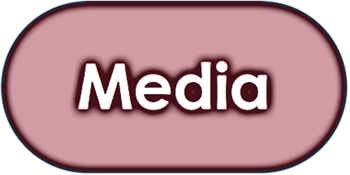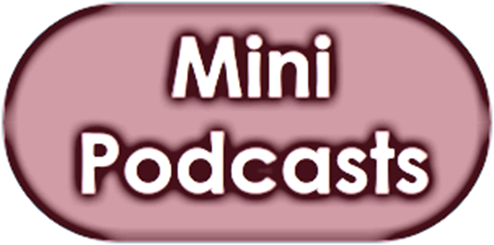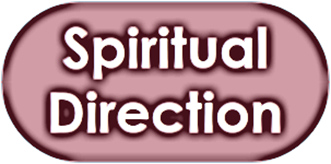Elul Unbound 2019: Stories/Readings
Each Tuesday of Elul, during this year’s Elul Unbound, we are sending out a story or reading that dovetails with the week's Elul Unbound theme. As each one is released during the month of Elul, they will be featured on this page.
Traditional Elul practice includes reading Psalm 27 each day of the month. Our Week One poem is a contemporary interpretation of those ancient words. After reading, we encourage you to check out the reflection questions below.
Week 1 (September 3rd, 2019):
Twenty-Seven: A Song for Morning
By Debbie Perlman
Let me slide into the morning, Dawn Bringer
With a smooth joining.
In the last glimpse of dreams,
Open my heart to a day
Poised to fill with goodness.
Let me move into today, Time Maker,
With a firm footing.
With Your Name upon my mouth,
I translate my praises into action,
Repairing my section of the world.
You recall to me my story;
You let me describe its sequel.
At day’s beginning, You comfort me,
Offering a Hand filled with courage
To sustain my work.
Let me glimpse tomorrow, Eternal Planner,
With eager memories.
Breathing deeply to set my heart
To the rhythm of creation,
I continue Your work.
You bring me to my beginnings,
To the beginnings of Your people,
Connecting my days to all other days,
Tying my work to the work of Your hand.
from Flames to Heaven - New Psalms for Healing & Praise
Reflection Questions:
1. Perlman asks, “open my heart.” This phrase pops up a great deal in Jewish texts -- ancient and contemporary. What does it mean for you? If you were to open your heart in one conscious way this month, what would it look like?
2. Perlman uses the phrase, “I translate my praises into action, repairing my section of the world.” What is one step you can take this month to "repair your section of the world?"
3. Do any other phrases, or individual words, jump out at you?Consider journaling for just a few minutes, on one phrase. Once you've done so, you may want to return to read your own wisdom in the coming days and weeks!
4. This poem starts with notions of heart and ends with notions of hand. How might that transition tie to our Elul idea of change "from the inside out?"
Week 2 (September 10th, 2019):
The Woodcarver
By Chuang Tzu, translated by Thomas Merton, 20th Century C.E)
Image Credit: Andrew Wales
Khing, the master carver, made a bell stand of precious wood.
When it was finished, all were astounded.
They said it must be the work of spirits.
The Prince of Lu said to the master carver,
"What is your secret?"
Khing replied: "I am only a workman:
I have no secret. There is only this:
When I began to think about the work you commanded I guarded my spirit,
did not expend it on trifles that were not to the point.
I fasted in order to set my heart at rest.
After three days fasting, I had forgotten gain and success.
After five days, I had forgotten praise or criticism.
After seven days, I had forgotten my body with all its limbs.
By this time all thought of your Highness and of the court had faded away.
All that might distract me from the work had vanished.
I was collected in the single thought of the bell stand.
Then I went to the forest to see the trees in their own natural state.
When the right tree appeared before my eyes, the bell stand also appeared in it,
clearly, beyond doubt, all I had to do was to put forth my hand and begin.
If I had not met this particular tree there would have been no bell stand at all.
What happened?
My own collected thought encountered the hidden potential in the wood:
From this live encounter came the work which you ascribe to the spirits.
Reflection Questions
1. What do you think Khing meant by “set my heart at rest?”
2. How could we “guard our spirits” this Elul?
3. What thoughts or behaviors are distracting you from being more present right now? Can you do anything to change that?
4. What is the meaning of a "live encounter?" How can we make space for live encounters this Elul?
Week 3 (September 17th, 2019):
Autumn (An Excerpt)
By Parker Palmer
Autumn is a season of great beauty, but it is also a season of decline: the days grow shorter, the light is suffused, and summer’s abundance decays toward winter’s death. Faced with this inevitable winter, what does nature do in autumn? It scatters the seeds that will bring new growth in the spring - and scatters them with amazing abandon.
In my own experience of autumn, I am rarely aware that seeds are being planted. Instead, my mind is on the fact that the green growth of summer is browning and beginning to die….
…In the autumnal events of my own experience, I am easily fixated on surface appearances – on the decline of meaning, the decay of relationships, the death of a work. And yet if I look more deeply, I may see the myriad possibilities being planted to bear fruit in some season yet to come.
In retrospect, I can see in my own life what I could not see at the time – how the job I lost helped me find work I needed to do, how the ‘road closed’ sign turned me toward terrain I needed to travel, how losses that felt irredeemable forced me to discern meanings I needed to know. On the surface, it seemed that life was lessing, but silently and lavishly the seeds of new life were always being sown.
...living is hidden within dying...
…In the visible world of nature, a great truth is concealed in plain sight: diminishment and beauty, darkness and light, death and life are not opposites. They are held together in the paradox of “hidden wholeness”.
In a paradox, opposites do not negate each other - they cohere in mysterious unity at the heart of reality. Deeper still, they need each other for health, as my body needs to breathe in as well as breathe out. But in a culture that prefers the ease of either/or thinking to the complexities of paradox, we have a hard time holding opposites together. We want light without darkness, the glories of spring and summer without the demands of autumn and winter - and the Faustian bargains we make fail to sustain our lives.
...Split off from each other, neither darkness nor light is fit for human habitation. But if we allow paradox of darkness and light to be, the two will conspire to bring wholeness and health to every living thing.
Autumn constantly remind me that my daily dyings are necessary precursors to new life. If I try to “make” a life that defies the diminishments of autumn, the life I end up with will be artificial, at best, and utterly colorless as well. But when I yield to the endless interplay of living and dying, dying and living, the life I am given will be real and colorful, fruitful and whole.
Reflection Questions
What resonated with you in this reading?
Does the idea that “living is hidden within dying” feel accurate to you? Why or why not?
What is a “daily dying,” as Parker describes it? Can you identify one such “daily dying” that manifests, or has manifested, in your life?
This might seem simplistic, but…what is a paradox? How can they cause us to reflect and re-think our assumptions?
How might the paradox of darkness and light pertain to a relationship of yours that is particularly challenging?















